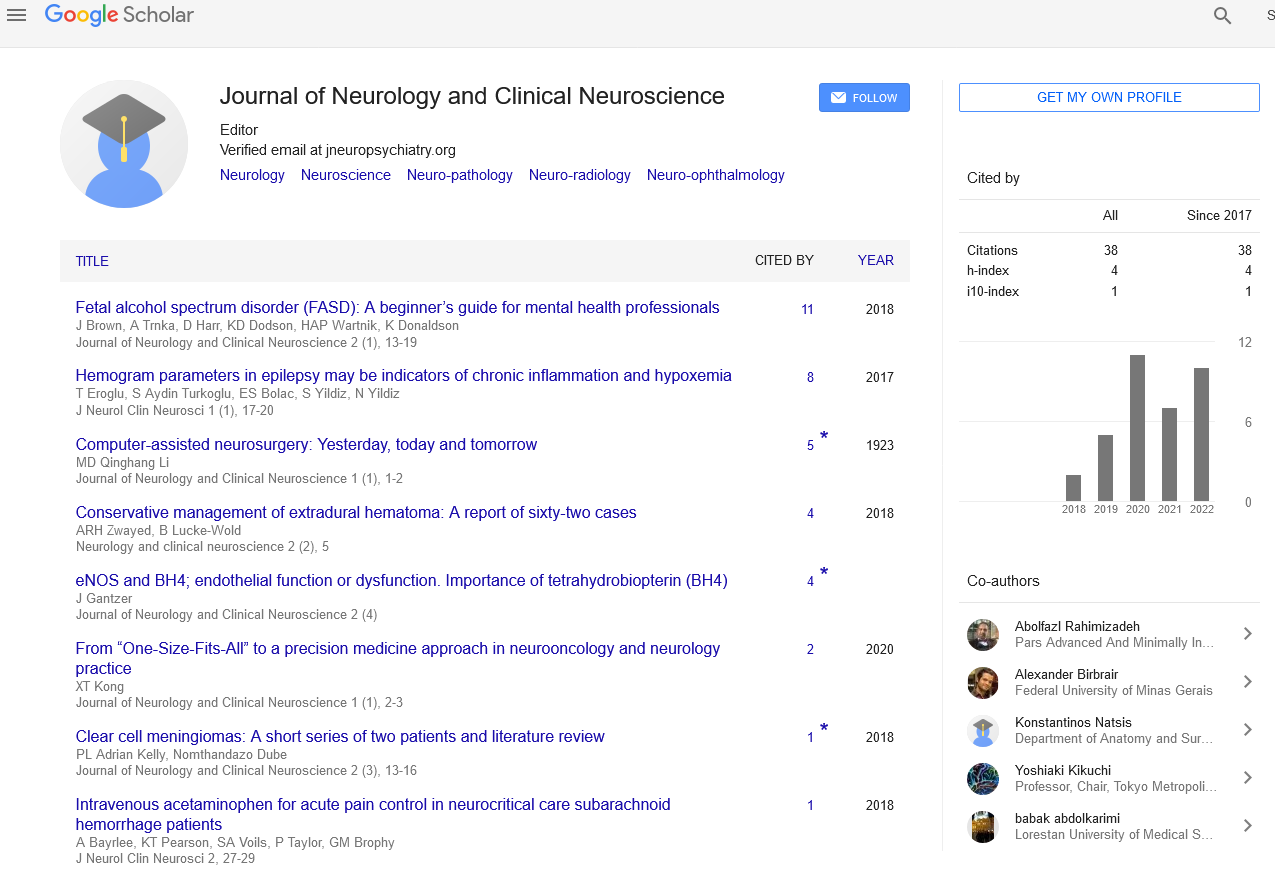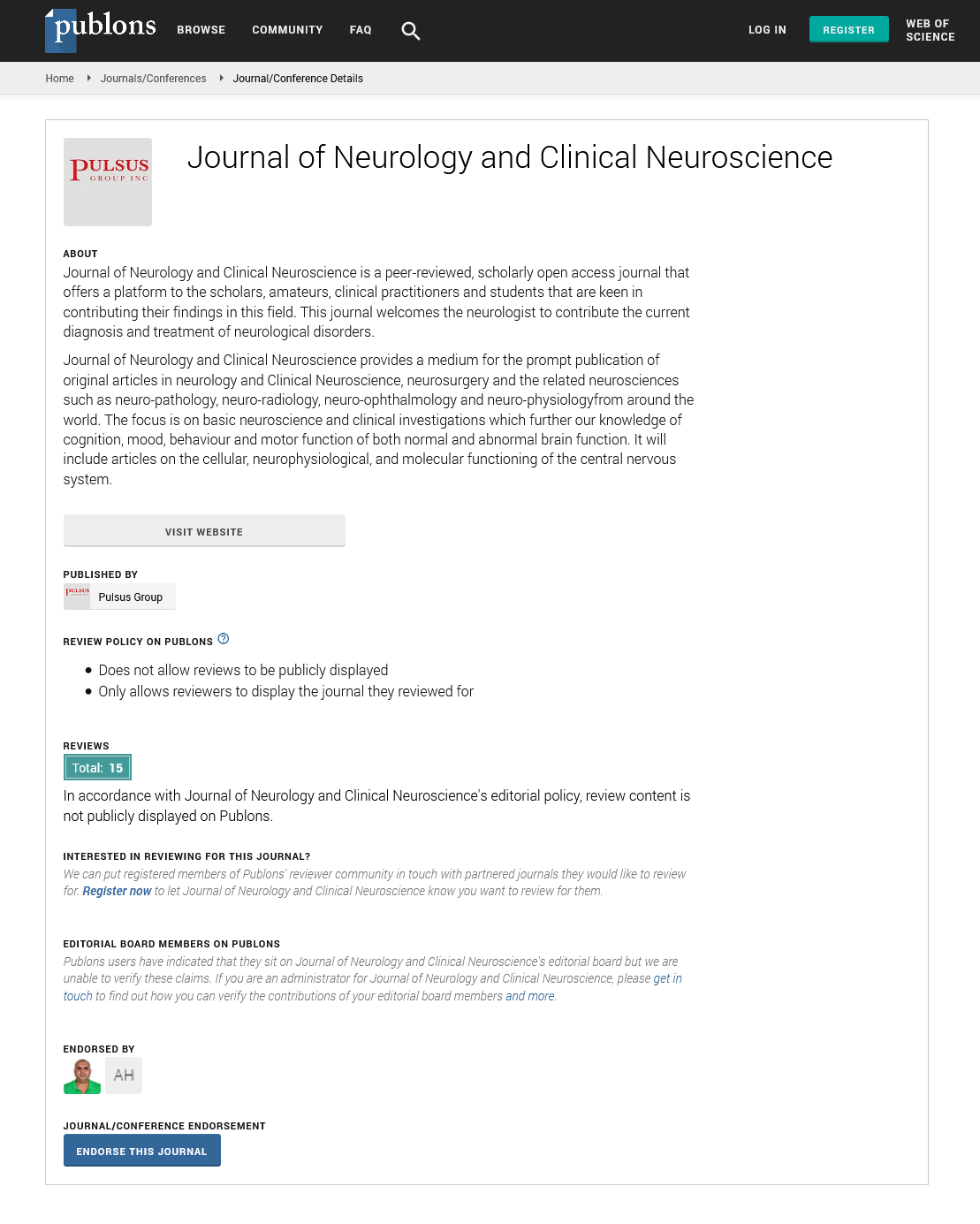Sign up for email alert when new content gets added: Sign up
The over-expression of survivin could prevent the oxidative stress and toxicity of rotenone in SH-SY5Y cells
10th International conference on Parkinson's and Movement Disorders
July 08, 2022 | Webinar
Arman Rahimmi
Kurdistan University of Medical Sciences, Iran
ScientificTracks Abstracts: J Neurol Clin Neurosci
Abstract :
Background and aim: It is important to find novel therapeutic molecular targets for curing Parkinson’s disease (PD). Accordingly, this study aimed to evaluate the effect of the over-expression of survivin gene, as a gene frequently reported as neuroprotective, on the in vitro model of PD. Methods: Survivin was over-expressed in SH-SY5Y cells. Next, the cells were treated with rotenone (500 nM) for 24 hours. Then, the viability and the total antioxidant capacity were assessed. The expression levels of 15 important genes of key cellular processes (oxidative stress, apoptosis, cell cycle, and autophagy) were assessed. The studied genes included survivin, superoxide dismutase, catalase, BAX, bcl2, caspase 3, caspase 8, caspase 9, p53, SMAC, β-catenin, mTOR, AMPK, ATG7, RPS18. The apoptosis level and the frequency of cell cycle stages were assessed by flow-cytometry. For analyzing the data, ANOVA test followed by Tukey’s test was used to evaluate the significant differences between the experimental groups. P < 0.05 was considered as significant. Results: Survivin could significantly decrease the rotenone-induced apoptosis in SH-SY5Y cells. The rotenone treatment leaded to down-regulation of catalase and upregulation of bax, bcl2, caspase 3, caspase 8, P53, β-catenin, and ATG7. Survivin could significantly neutralize the effect of rotenone in most of the genes. Survivin could also increase the total antioxidant capacity of SH-SY5Y cells. Conclusion: Survivin could prevent the toxic effect of rotenone on SH-SY5Y cells during the development of in vitro PD model via regulating the genes of key cellular processes, including anti-oxidation, apoptosis, cell cycle, and autophagy. Keywords: Parkinson’s disease, survivin, Apoptosis, Autophagy, Oxidative stress. Recent Publications: Arman Rahimmi, Sima Tozandehjani, Mona Daraei, The neuroprotective roles of Dietary Micronutrients on Parkinson’s disease: a review May 2022, Molecular Biology Reports, DOI:10.1007/s11033-022-07345-w Arman Rahimmi, Drawbacks to h-index, as a factor assessing the scientific impact and the scientific credit of a researcher June 2021, Collnet Journal of Scientometrics and Information Management 14(2):331-333, DOI:10.1080/097 37766.2021.1906183 Arman Rahimmi Effect of lobeglitazone on motor function in rat model of Parkinson’s disease with diabetes comorbidity May 2021, Brain Research Bulletin 173:184-192.
Biography :
Arman is Ph.D. of Molecular Medicine from Kurdistan University of Medical Sciences, Sanandaj, Iran. Arman does his researches exclusively in the field of neurodegenerative diseases, especially Parkinson's disease since 2012. He has performed several research projects about pathophysiology of PD, novel therapies, optimizing animal models of PD, etc. He is well-experienced in several cellular and molecular techniques, designing projects, and scientific writing. He is going to continue his scientific career as a postdoctoral researcher abroad.





